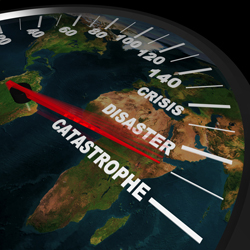Documenting environmental abuses
The environment has been abused by mankind throughout the millennia, and current shortcomings in this direction often go undocumented. The EU-funded project ′Assessment of environmental accidents from a security perspective′ (Securenv) is developing a knowledge base needed to ensure the security of citizens from future threats associated with attacks on the environment. Assessing emerging environmental threats requires a foresight exercise to identify these threats. The long-term objective of Securenv is to support the development of appropriate countermeasures and strategies to remedy or pre-empt such environmental damage. In its first year the project assessed previous and possible threats, outlining the tools and methods to be used during later stages of the four-year project. Specifically, the work started with a review and assessment of past environmental accidents, catastrophes and examples of deliberate attacks on the environment. A database was created that hosts over 330 records with qualitative and quantitative parameters to categorise these attacks. The project revealed that organised crime is an emerging phenomenon in this area and that the number of incidents is rising, not least because of increasingly strict environmental regulations. Several examples of environmental warfare have also been identified. Environmental warfare is the deliberate modification of an environment, from producing greenhouse gasses to using uranium-depleted bombs in war. The project is also investigating incidents related to invasive insect or animal species, revealing the scale of potential economic and environmental damage some of these species can cause. In addition to assessing previous incidents, the project′s work developing suitable foresight methodology has also progressed well. Existing foresight approaches in the area of environment and security have been reviewed to create a tailored approach for Securenv. In the meantime, workshops and expert surveys have made valuable contributions to the project. Securenv has also developed a strong dissemination and end-user involvement strategy. The project plans to continue identifying novel and emerging threats on the environment by terrorists and other organised groups. Scenarios will be examined to develop new measures for tackling environmental security issues and threats. Eventually, Securenv will provide recommendations to European policy-makers and the intelligence community taking into account ethical, cultural and organisational challenges.



